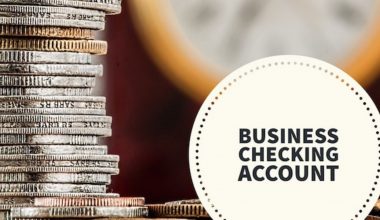Financial management can make or break a small business’ success. Nevertheless, business owners often continue to make potentially devastating financial mistakes. 27% of small business owners, for example, use the same checking account for personal and business finances, which can end up causing problems with tax write-offs and credit card processing systems. Your business bank account, in particular, plays a key role in your daily operations. By making sure you’re getting the most out of your account, you can better support your business now and into the future.
Understand the need for a business bank account
While you can use your personal bank account for your small business, it’s best to open a business bank account as soon as you can. A dedicated business bank account provides a clear picture of your finances, including income and expenses, which is extremely important when it’s time to file your taxes. Using a separate business account from the get-go ultimately simplifies accounting and financial forecasting. Alternatively, keeping track of personal expenses along with business transactions in one sole account can get complicated fast. Similarly, if you’re going to be accepting payments from customers, it’s important to open a separate merchant account in addition to your business account. A merchant account lets you securely accept electronic payments, acting as an intermediary between your account and the bank. This type of account can help improve cash flow as authorization for credit and debit cards are instant with funding occurring within 1-2 business days. Invoicing your customers, in comparison, can be a much longer process.
Make use of special offers and features
Look out for introductory deals offered by your provider that can run for around 18-25 months on average. When working to establish and grow your business, enjoying low or no fees for a time can be a significant help. Keep in mind. However, these deals are temporary, so be clear on the terms and conditions implemented after the introductory period ends. You can also check to see if your provider offers a dedicated Account Manager included in your package. An Account Manager can help you with financial decisions and inform you of related services to help make the most of your account.
Switch accounts when it’s time
After you’ve been using your business bank account for some time, you’ll soon come to recognize which features provide value to your business and which initially sounded good but are ultimately unnecessary. You may also discover other business account features you’d like to start using but aren’t offered by your current provider. So, it’s important to keep your options open, keep looking into other accounts and providers, and make the switch when it’s time.
Your business bank account plays a key role in your overall success. By understanding the need for a dedicated account, making use of special offers and features, and knowing when it’s time to switch accounts, you can get the most out of your business bank account.






